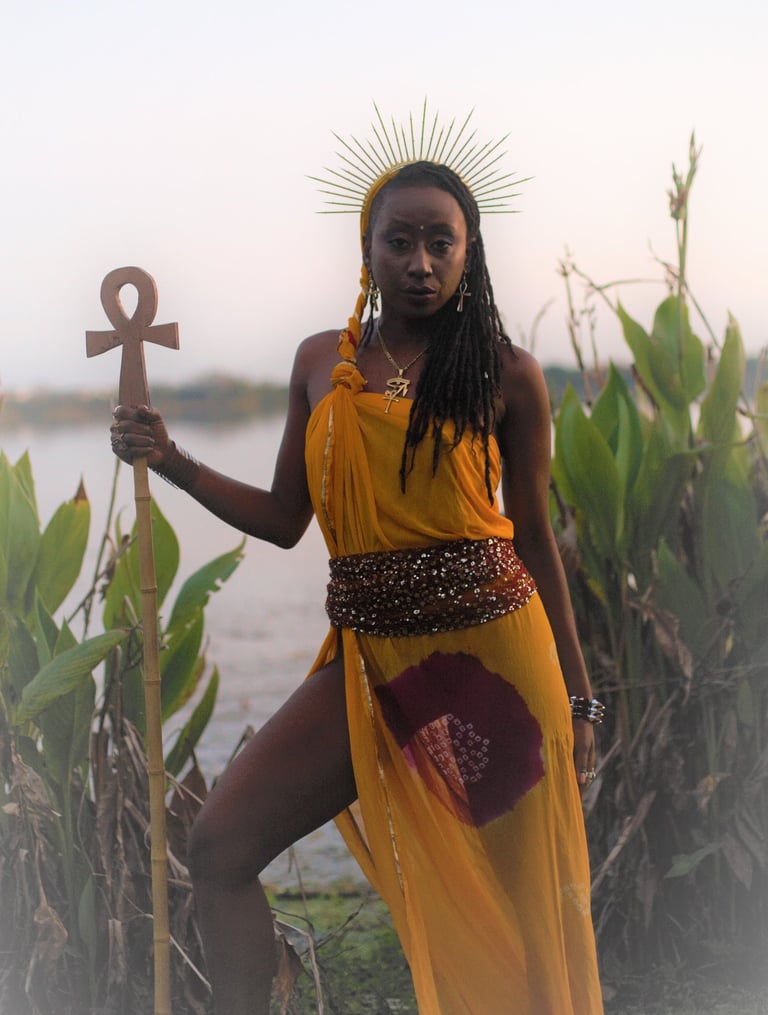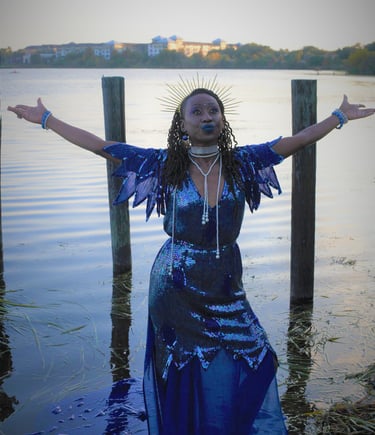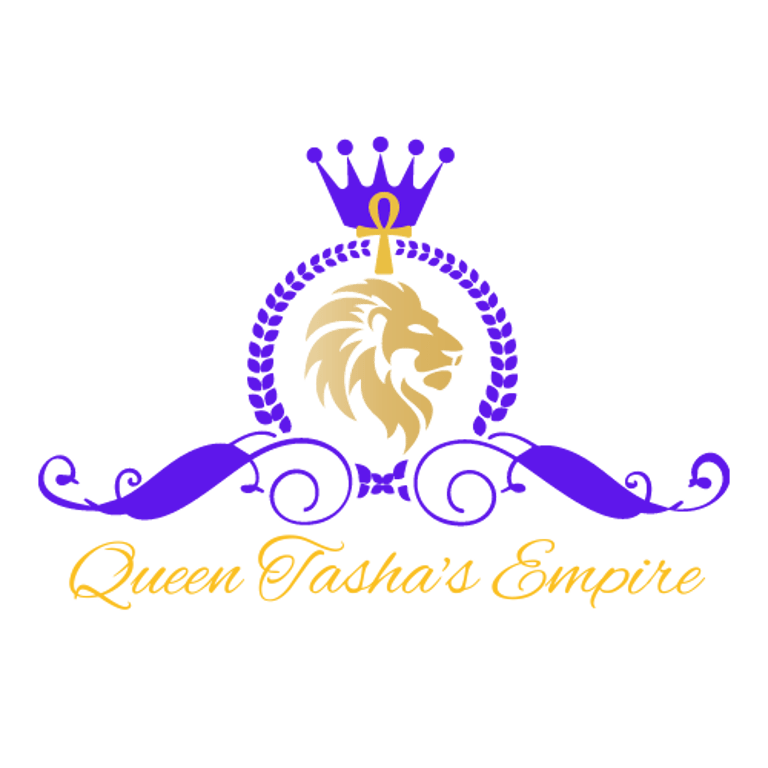Redefining Royalty: From Dominion Over Others to Mastery of Self
INSPIRATION & GROWTH BLOG
Queen Tasha
7/16/20248 min read


The Essence of True Sovereignty
True sovereignty is the ability to govern oneself with wisdom, compassion, and integrity. It means having the strength to set and honor personal boundaries, the courage to respect the boundaries of others, and the wisdom to engage in relationships and communities with mutual respect. In this redefined paradigm, every individual can be royal in their own right, embodying qualities that traditionally belonged to monarchs but are now seen as universal virtues.
Self-Mastery: The foundation of true sovereignty lies in self-mastery. This involves understanding one's strengths and weaknesses, desires and fears, and maintaining a balanced and centered inner life. Self-mastery allows individuals to respond to life's challenges with grace and resilience, rather than reacting out of fear or aggression.
Honor and Respect: Redefining royalty involves upholding honor and respect not just for oneself but for others as well. It is about recognizing the inherent dignity in every person and treating them with the same regard that one would expect for oneself. This mutual respect creates a foundation for genuine connections and collaborative efforts.
Boundaries: Healthy boundaries are essential for personal well-being and harmonious relationships. True sovereignty means knowing one's limits and communicating them clearly while also respecting the limits of others. Boundaries are not about exclusion but about creating a safe space where all parties can thrive.
Redefining the Roles of Queens and Kings
In a reimagined royal structure, the roles of queen and king take on new significance. These roles are not defined by hierarchy or dominance but by the ability to lead by example, inspire others, and foster an environment of growth and collaboration.
Queens as Nurturers of Growth: The role of a queen in this new paradigm is to nurture growth within herself and her community. She embodies compassion, wisdom, and strength, creating a supportive environment where everyone can flourish. The queen is a symbol of resilience and adaptability, guiding others through change and uncertainty with grace.
Kings as Protectors of Integrity: The king's role is to protect the integrity of the community and uphold the principles of justice and fairness. He leads with humility, understanding that true leadership is about service and stewardship rather than control. The king sets an example of courage and accountability, inspiring others to act with honor and integrity.
A Structure of Collaboration and Support
In this new vision of a royal empire, the structure is not a pyramid of power but a web of interconnected individuals, each contributing their unique strengths to the whole. Collaboration and support replace competition and rivalry, creating a cohesive and resilient community.
Shared Leadership: Leadership is not confined to a single individual or a select few but is shared among all members of the community. Each person is encouraged to take on leadership roles in areas where they have expertise or passion, fostering a sense of ownership and responsibility.
Mutual Support: In this redefined royal empire, support is mutual and reciprocal. Individuals recognize that their well-being is intertwined with the well-being of others. They offer help when needed and accept help when offered, understanding that everyone has something valuable to contribute.
Collective Wisdom: Decisions are made collectively, drawing on the diverse perspectives and experiences of all members. This collective wisdom ensures that choices are more inclusive and considerate of the community's needs and aspirations.
Redefining royalty from a paradigm of power over others to one of power over oneself represents a profound shift in how we view leadership, community, and personal sovereignty. True royalty is not about hierarchy but about embodying qualities of honor, respect, and collaboration. By embracing these principles, we can create a world where everyone is a king or queen in their own right, contributing to a vibrant and harmonious global community.
Throughout history, the notion of royalty has often been associated with dominance, authority, and hierarchy. Queen and King wielded their power over subjects, maintaining control through lineage and legacy. However, as we move into a more enlightened and interconnected era, the definition of royalty is evolving. True sovereignty is no longer about exerting power over others but about cultivating power within oneself. This shift reimagines royalty as a state of being accessible to all, built on principles of self-mastery, respect, and collaboration.






Empress vs. Queen: Title Hierarchy Explained
The titles "empress" and "queen" evoke images of grandeur, power, and authority, but they hold different connotations and historical contexts. Understanding these differences and their modern-day implications can help us appreciate why some, like myself, may prefer the title "Queen," especially when relating it to personal sovereignty and self-mastery.
Historical Context: Empress vs. Queen
Empress:
An empress rules over an empire, which often encompasses multiple nations or territories. Historically, empires were built on expansion, conquest, and the integration of diverse peoples under a single rule. The empress typically wielded considerable centralized power, often more so than a queen. Her authority extended over vast regions and a diverse populace, necessitating a complex and often rigid administrative structure. The title of empress carries a sense of imperial majesty and grandeur, often associated with vast wealth and immense influence. It implies a higher status than that of a queen due to the broader scope of an empire.
Queen:
A queen rules over a kingdom, which is usually smaller and more culturally unified than an empire. Kingdoms are often seen as more intimate and personal compared to empires. The power of a queen can vary significantly depending on the historical and cultural context. Some queens ruled independently, while others shared power with a king or were more ceremonial in their roles. The title of queen often conveys a sense of stability, tradition, and continuity. Queens are typically seen as maternal figures who nurture and protect their realm.
Modern-Day Interpretation and Preference
In contemporary society, these titles can still evoke their historical meanings, but they are also reinterpreted in personal and symbolic ways. Here’s why "queen" might resonate more with the concept of sovereignty over self:
Empress:
Connotations of Dominance: The title of empress can still imply dominance and control over a vast, often impersonal domain. It may suggest a level of authority that is external and hierarchical.
Imperial Legacy: Modern perceptions of empires are often linked to colonialism and the subjugation of different cultures. This can carry negative connotations that are at odds with the idea of personal sovereignty and mutual respect.
Queen:
Personal Sovereignty: The title of queen is often used to symbolize personal empowerment, dignity, and self-respect. It aligns well with the idea of sovereignty over oneself, suggesting inner authority and mastery.
Cultural Relevance: In modern culture, especially within movements focused on personal empowerment and self-esteem, the term "queen" is frequently used to celebrate individual strength and beauty. It is a term of respect and endearment that highlights personal worth.
Accessibility: Unlike the grand and somewhat distant title of empress, "queen" feels more accessible and relatable. It suggests that every individual has the potential to embody royal qualities within their own life, regardless of their external circumstances.
Embracing the Title of Queen
Choosing to identify with the title of "queen" rather than "empress" reflects a preference for values such as personal sovereignty, respect, and inner strength. It emphasizes a form of leadership that is grounded in self-mastery and mutual respect rather than hierarchical dominance.
Empowerment: Calling oneself a queen is a declaration of personal power and self-respect. It is an affirmation of one’s own worth and capabilities, embodying qualities such as grace, resilience, and dignity.
Community and Connection: The modern use of "queen" often implies a connection to others who recognize and honor each other's strengths. It fosters a sense of community and mutual support, unlike the solitary, hierarchical image of an empress.
Cultural Resonance: The title of queen has a strong cultural resonance in modern movements for gender equality, self-empowerment, and social justice. It is used to uplift and inspire individuals to recognize their own potential and to support others in doing the same.
In conclusion, while both "empress" and "queen" are powerful titles with rich histories, the title of "queen" aligns more closely with contemporary values of personal sovereignty, mutual respect, and community. It offers a more accessible and empowering symbol for individuals striving for self-mastery and honoring the sovereignty within themselves and others.
R.O.Y.A.L.T.Y. – Redefined Acronym
Respect
Ownership
Yielding wisdom
Authenticity
Leadership
Trustworthiness
Yearning for growth
Respect:
True royalty begins with respect—for oneself and for others. It is the foundation of all meaningful interactions and relationships.
Ownership:
Embracing responsibility for one's actions, decisions, and their consequences. It’s about taking control of your own life and destiny.
Yielding Wisdom:
Sharing knowledge and insights gained through experience to help others grow and thrive.
Authenticity:
Being genuine and true to oneself, without pretense. Authenticity inspires trust and deeper connections with others.
Leadership:
Leading by example, with integrity, courage, and a vision that inspires and guides others.
Trustworthiness:
Earning and maintaining the trust of others through consistent, honorable actions and a commitment to ethical principles.
Yearning for Growth:
A continuous desire to learn, improve, and evolve. This drive for personal and collective growth propels individuals and communities forward.
This redefined acronym encapsulates the modern essence of royalty, focusing on virtues and qualities that promote self-mastery, mutual respect, and collective advancement.


R.O.Y.A.L. Q.U.E.E.N. – Empowering Acronym
Resilient
Optimistic
Yielding wisdom
Authentic
Leader
Qualified
Unwavering
Empathetic
Empowered
Noble
R.O.Y.A.L.:
Resilient: A Royal Queen is resilient, capable of withstanding challenges and emerging stronger.
Optimistic: She maintains a positive outlook, inspiring those around her to hope and strive for better.
Yielding wisdom: She possesses and shares wisdom, guiding others with her insight and experience.
Authentic: She is true to herself and her values, embodying genuine self-expression.
Leader: She leads by example, demonstrating integrity, courage, and vision.
Q.U.E.E.N.:
Qualified: A Royal Queen is qualified by her virtues, skills, and experiences to lead and inspire.
Unwavering: She remains steadfast in her principles and commitments, regardless of obstacles.
Empathetic: She understands and shares the feelings of others, fostering compassion and connection.
Empowered: She embraces her own power and encourages others to do the same, lifting up those around her.
Noble: She embodies nobility through her actions, thoughts, and character, reflecting high moral standards.
R.O.Y.A.L. K.I.N.G. – Empowering Acronym
Resilient
Optimistic
Yielding wisdom
Authentic
Leader
Kind
Integrity
Noble
Guardian
R.O.Y.A.L.:
Resilient: A Royal King is resilient, demonstrating strength and perseverance in the face of adversity.
Optimistic: He maintains a positive and hopeful outlook, encouraging others to see possibilities and solutions.
Yielding wisdom: He offers wisdom gained from experience and reflection, guiding others with insightful advice.
Authentic: He remains true to himself and his principles, exemplifying honesty and sincerity.
Leader: He leads with vision, courage, and humility, inspiring trust and respect in those who follow him.
K.I.N.G.:
Kind: A Royal King is kind, showing compassion and empathy towards others, creating a nurturing environment.
Integrity: He acts with integrity, upholding strong moral and ethical principles in all his actions.
Noble: He embodies nobility through his actions, character, and commitment to higher ideals.
Guardian: He is a guardian of his realm, protecting and defending the well-being of his community and those he loves.
Mailing Address
690 Main St. PMB 10023
Safety Harbor, FL 34695
Subscribe to Newsletter
Contacts
QueenTashasEmpire@gmail.com
